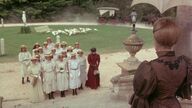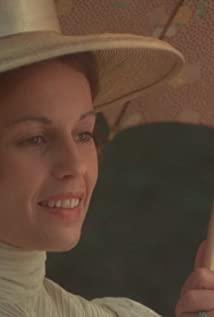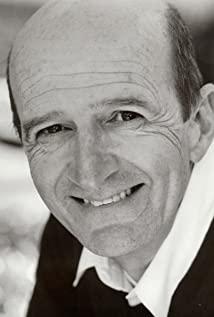As a mysticism film, "Picnic on the Cliff" does have many answers. But "mysticism", is it inconvenient to teach people to over-interpret it? The joy of over-interpretation is difficult for ordinary people to detect, but I think that this way of analyzing text starts from the text itself-representing the infinite possibilities of the text separated from the author. The following is my "over-interpretation" of this movie.
The film begins with a sentence: "What we see, and what we seem to see, is related to a dream, a dream within a dream."
Can this sentence be interpreted as a dream in the film? According to the clues that follow, this is well-founded. Of course, this sentence may only be used to explain this incredible situation like a dream.
I think this is Sara's dream. First of all, Sarah did fall asleep after they set off.
Secondly, the group of people on the picnic had an accident: the clock stopped. This image is very obvious, and usually refers to a situation that has entered a period of time and space.
So what is the theme of the dream? It's sex. In the movie, for the two surviving girls, the point that they are still virgins is specifically emphasized. And there are obvious hints:
Including the missing female teacher: "only in underwear".
About what sex? Sara is a lesbian, and she is also an orphan. Her situation should be contradictory and struggling. Sarah committed suicide, and there was a hint:
"Some people are orphans, or have guardians, or... you know"
This is what the maid said. Or what? Anyway, the first thing I think of is the child bride. Considering that it may not be called that in foreign countries, it is still debatable whether there is a support relationship.
As a gay, what would she think? She should struggle internally. Her desire and restraint are reflected in the five missing persons.
The first one is a fat girl with glasses. She was the only one who escaped and survived. Obviously she represents the kind of conservative, restrained, and even opposing forces.
The next three people have been missing and have not been found. One characteristic of them is that they have taken off some clothes. It can be seen as moving towards freedom, where lust triumphs over reason. The girl leads to the top of the unknown mountain with bare feet, the image is very obvious. The teacher said: "Miranda is Botticelli's angel." Sara also said: "Miranda knows she will not come back." Beauty is gone, Sara thinks so because of her disappointment in herself.
Finally, the survivors. The survivor is a unique existence that reflects the complexity of the problem. In the struggle between the two forces in her heart, she seems to have developed a defense mechanism, which is to objectively see the problem from a third perspective. The survivor’s description was: “Severe scratches, possibly concussions, and loss of that memory. No other body was injured, and there were no stains on the feet, she was still a virgin, but the corset was missing.”
Of course, the most difficult thing to justify in my statement is the chaos of the timeline. Especially when Sarah herself is also involved. There are two inexplicable but permeating lines in the movie:
"The rise and fall of everything has its own specific stages."
"It is surprising that many people are purposeless, although it is possible. Yes, they are performing some kind of ritual that they don't even know about."
I even suspect that this is a prophecy, a prophet of God, a volitional argument.
The above is my serious nonsense. In fact, if I continue to dig out the lines, there should be even greater discoveries.
View more about Picnic at Hanging Rock reviews











